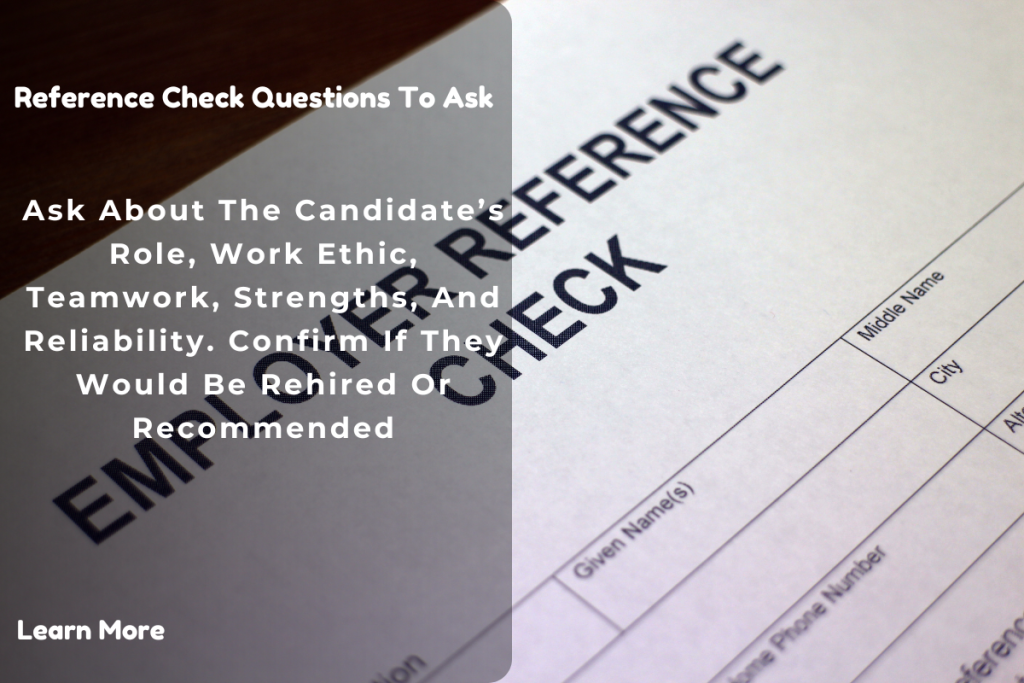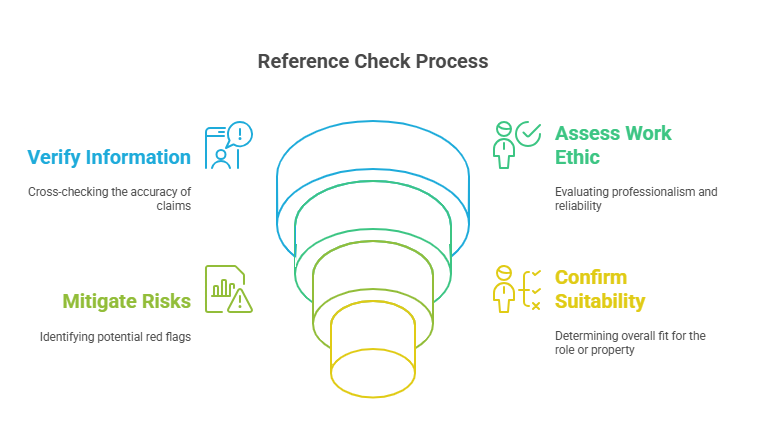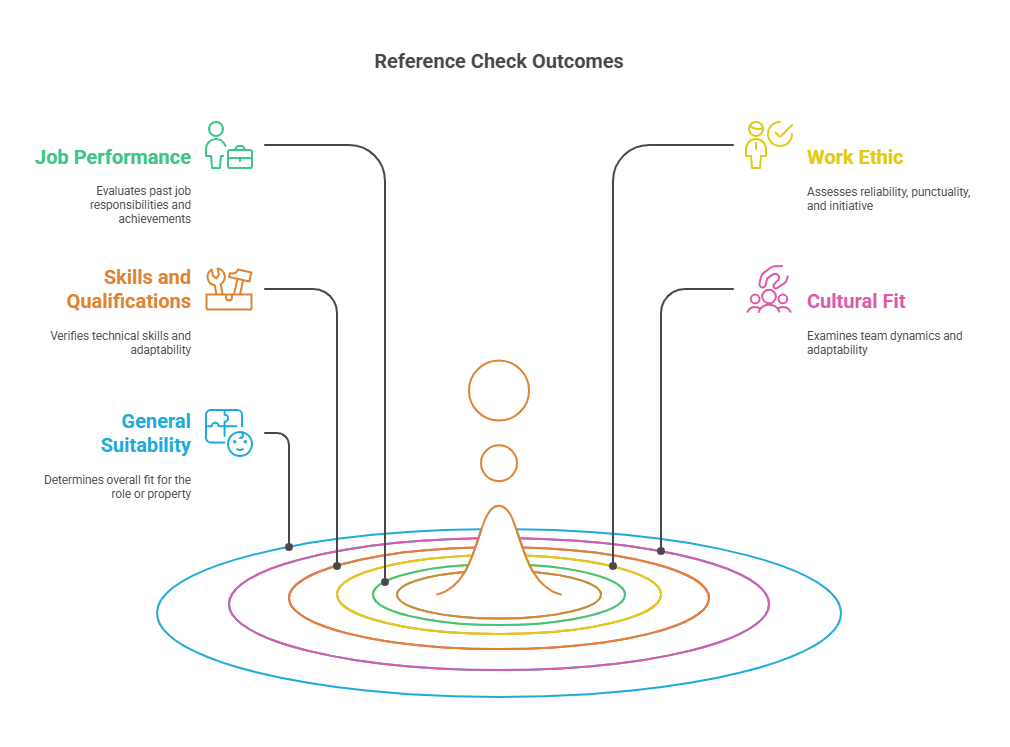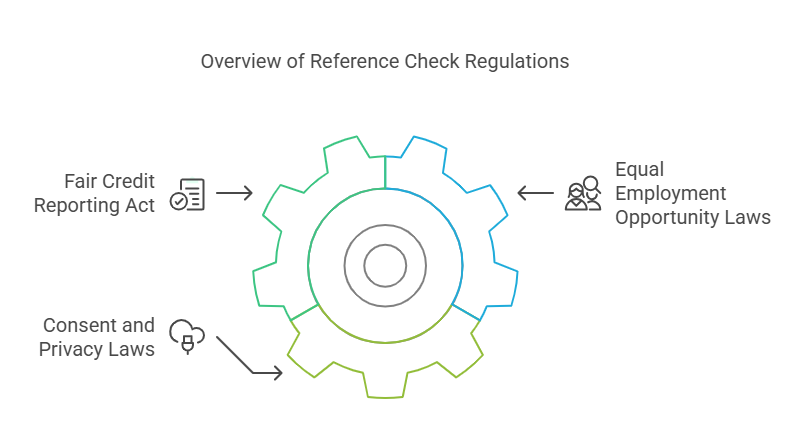The Ultimate Guide to Questions to Ask for a Reference Check

Introduction to Reference Checks and Why They Are Important
A reference check is an essential step in both employment and tenant screening processes. It involves contacting individuals who are familiar with a candidate’s or tenant’s past behavior, qualifications, and overall character to verify the information they’ve provided. This step is crucial for employers and landlords alike, as it helps ensure that they make informed decisions when hiring or renting out their property.
What Is a Reference Check?
In the context of employment, a reference check typically involves reaching out to previous employers, colleagues, or other professional contacts to validate a job candidate’s work experience, skills, and character. For tenant screenings, landlords may contact previous landlords or personal references to verify a potential tenant’s rental history, payment reliability, and behavior. The goal of a reference check is to gather additional information that might not be visible on resumes or application forms, allowing for a fuller picture of the individual’s suitability for the role or rental property.
Why Are Reference Checks Important?

Reference checks are critical for several reasons:
- Verification of Information: Candidates and tenants may provide references or credentials that are not entirely accurate. A reference check serves as a tool to verify the authenticity of these claims, ensuring there are no discrepancies or misrepresentations.
- Insight into Work Ethic and Behavior: For employers, a reference check provides insight into a candidate’s work ethic, punctuality, professionalism, and teamwork abilities. For landlords, it offers valuable information about a tenant’s rental behavior, including their payment history and upkeep of the property.
- Risk Mitigation: Reference checks help reduce the risk of hiring or renting to individuals who may pose a potential threat, whether through a poor work ethic, problematic behavior, or other negative traits that could negatively impact the business or property.
- Confirming Suitability: By contacting individuals who have previously worked with or rented to the candidate, employers and landlords can gain a clearer understanding of whether the person is truly a good fit for the position or property in question.
The Role of Reference Check Questions
The effectiveness of a reference check lies in the quality of the questions asked. Properly designed questions enable employers or landlords to gather relevant and accurate information about the candidate or tenant, ensuring they can make informed decisions. Inadequate or irrelevant questions may lead to incomplete or misleading assessments, which could affect the outcome of the hiring or renting process.
Common Questions Asked During Reference Checks
The questions asked during a reference check vary depending on whether the context is employment or tenant screening. However, there are several types of questions that are typically asked to obtain valuable insights:
- Job Performance: For employment reference checks, questions related to the candidate’s job responsibilities, strengths, and areas of improvement are common. These help assess whether the candidate has the necessary skills and experience to succeed in the role.
- Work Ethic: Questions about punctuality, reliability, and the ability to meet deadlines provide insight into the individual’s work ethic and professionalism.
- Character and Behavior: These questions focus on the individual’s character, asking references to describe how the person interacts with colleagues, clients, or tenants, and how they handle challenges.
- Suitability for the Role: This type of question assesses whether the candidate or tenant would be a good fit for the position or rental property, considering factors such as adaptability, compatibility, and prior experiences.
By asking the right combination of questions, employers and landlords can verify key aspects of an individual’s history and qualifications, ensuring that they are making an informed decision.
Key Questions to Ask During a Reference Check and How to Ask Them
Conducting a reference check requires asking the right questions to gather the most accurate and useful information. Well-structured questions can provide valuable insights into a candidate’s qualifications, character, and behavior, ultimately helping employers and landlords make informed decisions. In this section, we will explore the key categories of reference check questions, focusing on job performance, work ethic, skills, cultural fit, and general suitability. Additionally, we’ll discuss how to phrase these questions effectively to maximize the value of the reference check.

Job Performance Questions
Job performance is one of the most critical areas of inquiry during a reference check, especially for employers seeking to assess a candidate’s ability to perform in a specific role. The purpose of these questions is to verify whether the candidate has the skills and experience required for the job.
Examples of job performance questions include:
- Can you describe the candidate’s primary responsibilities in their previous position?
- How well did the candidate meet the expectations for their role?
- What specific achievements did the candidate accomplish during their time with your company?
- How did the candidate handle challenges or high-pressure situations?
- What were the candidate’s biggest strengths in their role?
- Were there any areas where the candidate needed improvement?
- Did the candidate consistently meet deadlines and performance goals?
These questions help the reference provide insights into the candidate’s actual performance in a previous role, which is crucial for predicting how they may perform in the future.
Work Ethic and Professionalism Questions
Understanding a candidate’s work ethic is essential, as it influences their reliability, commitment, and attitude toward work. For employers, knowing how a candidate approaches their responsibilities, punctuality, and overall professionalism is vital to ensuring they will be a dependable employee.
Examples of work ethic and professionalism questions include:
- How would you describe the candidate’s punctuality and attendance record?
- Did the candidate take initiative in their role, or did they require constant supervision?
- How well did the candidate manage their time and prioritize tasks?
- Can you speak to the candidate’s ability to work independently versus as part of a team?
- Was the candidate open to constructive feedback and improvement?
These questions provide an overview of how dedicated and responsible the candidate is, as well as their attitude toward work-related challenges.
Skills and Qualifications Questions
It’s important to confirm that the candidate possesses the necessary skills and qualifications for the role. Reference checks can help verify these competencies, ensuring that the candidate’s self-reported abilities align with their actual performance.
Examples of skills and qualifications questions include:
- Did the candidate demonstrate the technical skills required for the role?
- How well did the candidate adapt to new tools, systems, or processes?
- Can you provide examples of how the candidate used their skills to contribute to the company’s success?
- Were there any skills the candidate lacked that were necessary for their role?
By asking these questions, you can confirm whether the candidate has the qualifications and technical expertise needed to excel in the role.
Cultural Fit and Team Dynamics Questions
Cultural fit is a crucial factor in employee success. It assesses how well a candidate will integrate with the team and the organizational culture. For landlords, understanding a tenant’s ability to cooperate with neighbors or follow community guidelines is just as important. Asking about a candidate’s or tenant’s interaction with others helps evaluate their potential for long-term success.
Examples of cultural fit and team dynamics questions include:
- How did the candidate interact with colleagues, clients, and management?
- Was the candidate a team player? Can you provide examples of their ability to collaborate?
- How well did the candidate adapt to the company culture?
- Did the candidate exhibit leadership potential, or were they more comfortable in a supporting role?
- How did the candidate handle conflict or disagreements with coworkers or supervisors?
These questions give valuable insights into the candidate’s interpersonal skills and how well they will fit into an existing team or community.
General Suitability Questions
Finally, these questions are designed to determine whether the candidate or tenant is a good fit for the specific role or rental property. For employers, this could include assessing the person’s ability to thrive in the role long-term, while for landlords, it could mean evaluating whether the tenant will maintain the property well and pay rent on time.
Examples of general suitability questions include:
- Based on your experience, do you think the candidate would be a good fit for this position? Why or why not?
- Would you rehire the candidate or rent to them again? Why or why not?
- How did the candidate handle difficult situations, and would you trust them to manage similar challenges in the future?
- For tenants: Did the tenant pay rent on time and take care of the property during their tenancy?
- For tenants: How did the tenant interact with neighbors and handle any maintenance issues?
These questions provide an overall assessment of whether the candidate or tenant is likely to be successful in the new environment.
Data Table: Categories of Reference Check Questions
| Category | Purpose | Examples of Questions |
|---|---|---|
| Job Performance | Assess the candidate’s previous job responsibilities and achievements. | Can you describe the candidate’s primary responsibilities? What were their achievements? |
| Work Ethic and Professionalism | Understand the candidate’s reliability, punctuality, and attitude toward work. | Was the candidate punctual? Did they take initiative? How did they handle feedback? |
| Skills and Qualifications | Verify the candidate’s claimed skills and expertise. | Did the candidate possess the necessary technical skills? Can you provide examples? |
| Cultural Fit and Team Dynamics | Assess how the candidate interacted with coworkers and fit into the team. | How did the candidate interact with others? Was the candidate a team player? |
| General Suitability | Determine if the candidate or tenant is a good fit for the role or property. | Would you rehire the candidate? Did the tenant maintain the property? |
Precisehire’s Role in Reference Checks
When conducting a reference check, it’s essential to rely on accurate and reliable sources. Services like Precisehire can assist employers and landlords in conducting thorough reference checks by providing detailed background screening services. Precisehire ensures that all reference checks are conducted professionally, efficiently, and in compliance with applicable regulations, helping employers and landlords make informed, confident decisions.
Legal Aspects of Conducting a Reference Check
While conducting a reference check can provide valuable insights into a candidate’s or tenant’s past performance and behavior, it is crucial to ensure that the process complies with legal standards. Both employers and landlords must be aware of the relevant laws that govern reference checks to avoid legal pitfalls and ensure that they are conducting the process ethically and legally.
Fair Credit Reporting Act (FCRA)

In the United States, the Fair Credit Reporting Act (FCRA) regulates how reference checks and other background checks are conducted. The FCRA requires that employers and landlords obtain written consent from candidates or tenants before conducting a reference check or any background screening. This consent ensures that the individual is aware that their references will be contacted and that the information gathered will be used in the decision-making process.
If an employer or landlord decides not to hire a candidate or rent to a tenant based on information from a reference check or background screening, they are required to provide the individual with a notice that includes a copy of the report used and their right to dispute any incorrect information.
Equal Employment Opportunity (EEO) Laws
Under federal laws, employers must avoid discriminatory practices during the reference check process. The Equal Employment Opportunity Commission (EEOC) enforces laws that prohibit discrimination based on race, color, religion, sex, national origin, age, disability, or genetic information. When conducting reference checks, employers must ensure they ask questions that are related to the candidate’s qualifications for the role and avoid questions about personal characteristics that could lead to discrimination.
Similarly, in the context of tenant screening, landlords must adhere to the Fair Housing Act, which prohibits discrimination based on race, color, religion, sex, familial status, national origin, or disability. Questions that may violate these laws, such as asking about a tenant’s race, family situation, or religion, should be avoided during the reference check process.
Consent and Privacy Laws
It is essential for both employers and landlords to obtain written consent before conducting a reference check, as privacy laws vary from state to state and country to country. Additionally, certain types of information, such as medical records or details about an individual’s criminal history, may be subject to additional privacy protections, and it is important to understand which questions or information are legally allowed to be requested.
Employers and landlords should also be cautious not to overstep privacy boundaries during a reference check. For example, asking overly intrusive or irrelevant personal questions could violate privacy laws and potentially expose them to legal action.
Frequently Asked Questions About Reference Checks
What types of questions should you avoid in a reference check?
During a reference check, you should avoid asking questions related to personal characteristics or information not relevant to the role or rental property. This includes questions about the candidate's age, marital status, race, religion, sexual orientation, or any other personal information that could lead to discrimination. Stick to questions about the candidate's work history, qualifications, and performance.
Can reference checks include criminal background checks?
Yes, reference checks can include criminal background checks, but it is important to note that these checks should only be conducted if the candidate or tenant has given explicit consent. Criminal background checks are often a separate process and may require additional steps or disclosures under the law. Employers and landlords must also be mindful of local and state regulations regarding the use of criminal history in hiring or renting decisions.
How do you handle discrepancies in reference responses?
Discrepancies in reference responses should be handled carefully and professionally. If the reference check reveals conflicting information, it is important to follow up with the reference to clarify the discrepancy. If needed, other references should be consulted to get a more complete picture. In the case of employment references, contacting the candidate for clarification can also help resolve any misunderstandings.
Is it legal to contact a candidate's former employer without consent?
In most cases, it is legal to contact a candidate's former employer, but obtaining consent is necessary. Employers are required to obtain written consent from the candidate before conducting a reference check. Without consent, contacting a former employer could violate privacy laws or the FCRA, especially if the information is used to make a hiring decision.
What should you do if a reference gives negative feedback?
If a reference provides negative feedback, it is important to consider the context and weigh it against other reference checks. Negative feedback does not automatically disqualify a candidate, but it should be taken into account when evaluating the candidate’s overall suitability. It’s also important to ensure that the negative feedback is not based on discriminatory factors or personal biases.
Conclusion
Reference checks are a vital part of the hiring and tenant screening process. By asking the right questions and following legal guidelines, employers and landlords can gain a more accurate understanding of an individual’s qualifications, work ethic, character, and suitability for a position or rental property. The right questions provide insights that go beyond resumes and applications, helping make more informed and confident decisions.
Ensuring compliance with privacy laws, obtaining proper consent, and respecting the legal limits of what can be asked will not only help avoid legal issues but also build trust with candidates and tenants. By integrating thorough and ethical reference check practices into your hiring or tenant selection process, you can mitigate risks and ensure better long-term outcomes.
Using professional services like Precisehire can streamline the reference check process, providing comprehensive background checks that are compliant, reliable, and efficient. With the help of such services, employers and landlords can conduct thorough and legally sound reference checks, ensuring they make informed, fair, and responsible decisions.
